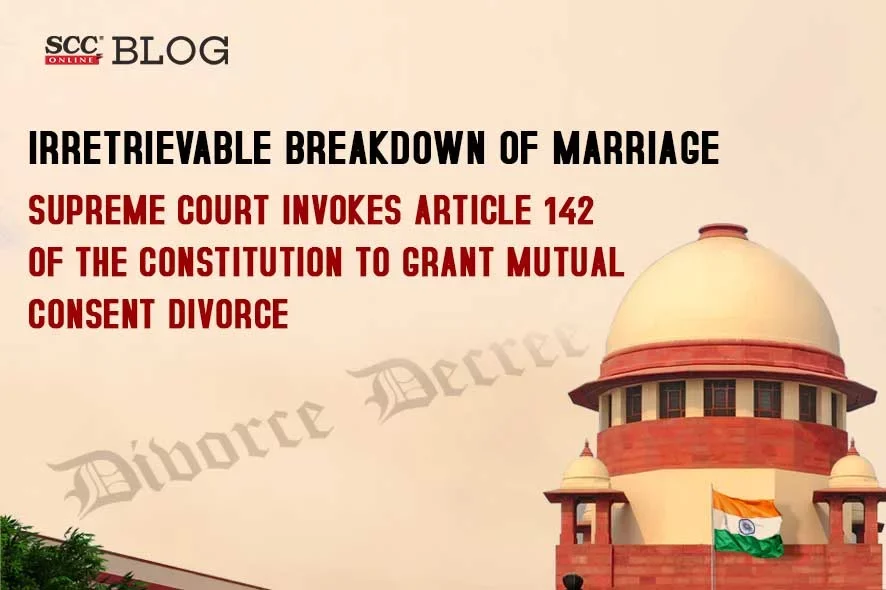Supreme Court: When a woman approached the Supreme Court seeking transfer of divorce petition under the Hindu Marriage Act, from Indore to Lucknow, the bench of Sanjay Kishan Kaul and Ahsanuddin Amanullah*, JJ noticed that the parties have suffered an irretrievable breakdown of marriage and hence, in order provide complete justice, the Court exercised the power under Article 142 of the Constitution of India to grant mutual consent divorce to the parties. The Court also closed all cases filed by the parties against each other.
It is important to note that, on 01-05-2023, a 5-judge Constitution Bench had held that the Supreme Court has the power to dissolve a marriage on the ground of irretrievable breakdown under Article 142(1) of the Constitution and that it can dissolve a marriage by mutual consent without following the procedural requirement of a second motion.
In the case at hand, the parties married on 12.12.2016 and separated on 29.10.2021 without the birth of any child. While the divorce proceedings were initiated by the husband, the wife's father had also initiated criminal cases against the husband for offences punishable under Section 498A, 323 and 354 of the Penal Code, 1860 and Sections 3 & 4 of the Dowry Prohibition Act, 1961. Apart from this, the wife has herself filed Maintenance Case under Section 125 of the Code of Criminal Procedure, 1973, which is pending before the Family Court, Lucknow.
Though both the parties had taken the stand that they were desirous of settlement through mediation and the matter was referred to the Supreme Court Mediation Centre, the mediation remained unsuccessful as no agreement could be reached insofar as permanent alimony was concerned, despite being desirous of a mutual consent divorce.
While the wife had sought Rs.70,00,000/- as permanent alimony, the husband had offered only Rs.25,00,000/-. Going through the financial standing of the parties, the Court quantified the permanent alimony at Rs.35,00,000/- , to be paid within six months. The Court then went on to grant the decree of mutual consent divorce and closed all cases filed by the parties against each other. It has, however, been made clear that if the permanent alimony is not paid within the stipulated time-period, the criminal cases, as well as the Maintenance Case shall stand revived. The Decree of Mutual Consent Divorce is also to be issued after payment of permanent alimony.
[Mansi Khatri v. Gaurav Khatri, 2023 SCC OnLine SC 667, decided on 19.05.2023]
*Judgment Authored By Justice Ahsanuddin Amanullah
Know Thy Judge | Supreme Court of India: Justice Ahsanuddin Amanullah
Advocates who appeared in this case :
For Petitioner(s): Mr. Vishnu Shankar Jain, AOR Mr. Parth Yadav, Adv. Ms. Mani Munjal, Adv.
For Respondent(s): Mr. Raj Singh Rana, AOR







Courts are encouraging Alimony nd girls family are using this as a weapon nd looting, if this trend goes on in no time boys will not get married nd I think there will a irreversible reaction will will end the sanctity of Marriage. Judges should take a note of this.